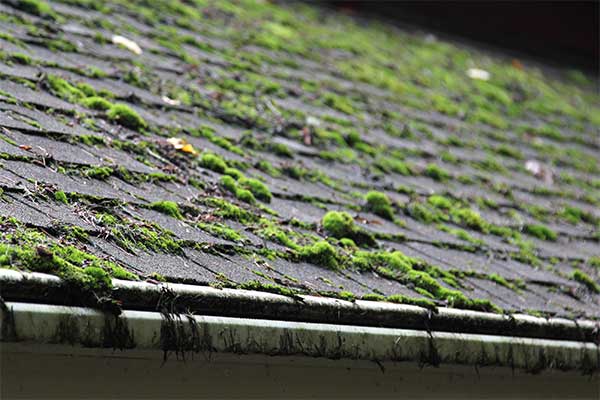Mold, moss, mildew, and algae are not only eyesores, but have potential to damage your roof. Unless you’re in the market to purchase a new roof, you’ll want to prevent fungus from growing. When warm weather arrives, that’s the time to start checking and cleaning your roof.
Fungi can form on your roof and hide in small, hard to reach areas. Having mold, mildew, moss, or algae growing on your roof can cause roof rot, lead to health problems and bring down your property value.
Mold
Mold can appear in many ways, that include: fuzzy black, brown, green spots, and in certain instances, a slimy film consistency. It has a strong musty smell that can’t be ignored. A damp and humid environment is a breeding ground for mold. Black mold is the most dangerous type of mold that lives on wood, paper and drywall. If you see this type of mold and do not address the problem quickly, it could weaken the entire structure of the home or building it resides in. Black mold is toxic and causes serious respiratory issues.
Moss
Moss like many other types of fungi, thrive on moisture and typically grows on moist wood shingles or shakes. As it grows, it contains more moisture that rests on the surface of your roof. The roof will begin to rot if you don’t take care of it.
Mildew
Mildew is different then other fungi, in that, it has a powdery consistency and spreads at a fast rate. Mildew typically grows in warm, humid and wet environments. It’s most commonly found on roofs with poor drainage, usually where trees hang over the roof line. It comes in a variety of colors, like green, black, red, or pink.
Algae
Like all fungi, algae loves wet environments, but it needs shade to thrive. Algae spores grow on wood and asphalt shingles that don’t get much sunlight. Roof algae retains moisture and because of that, they can cause shingles to deteriorate and rot. Algae prefers the humid conditions in gutters and downspouts and can grow there as well. Algae is blackish-green in color.
Roof Rot
All fungi (mold, moss, mildew, and algae) spores exist in the air, however they will not start growing on your roof, if the right living conditions aren’t available. We hope that you don’t have to deal with fungus on your roof. However, if this occurs and causes damage to your roof, contact Oaks Construction at 585-247-6257. We are here to help.

